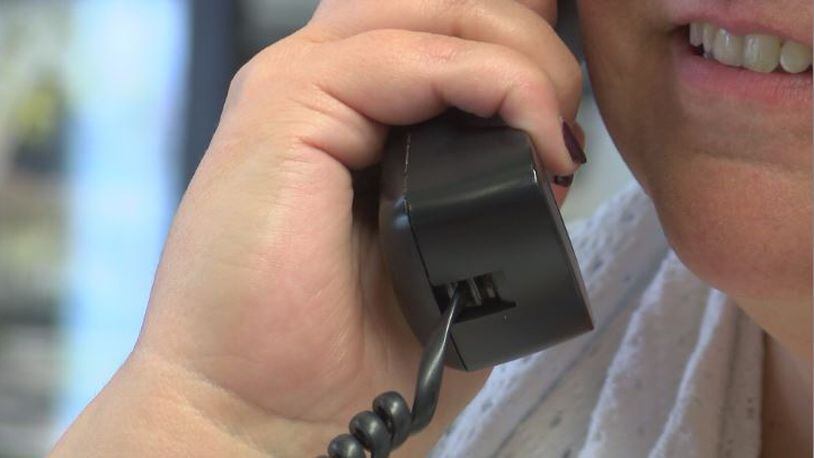In fact, a new study by YouMail shows they have doubled year over year across the country - to 2.61 billion last month or over a thousand calls a second.
Political polling is most likely to blame for the increase, said Sheri Sword with the BBB.
Those types of calls, as well as survey, charity, and informational calls are exempt from the 2009 FTC rule prohibiting telemarketing calls.
Calls to businesses are also allowed- so I’m out of luck.
In most other cases, approval to receive a robocall is required to be in writing- but that could include checking a box on a website, or pressing one on the phone- if it is clear that you are agreeing to receive robocalls, according to the FTC.
Other callers are just outright breaking the law by ignoring the do-not-call registry.
“I was very upset,” said Britney Jones of Clayton, “I put my number on that do-not-call registry and I still get tons of calls.”
The FTC recommends call blocking apps and products as a defense against robocalls, more ideas here.
You can register for the do-not-call list and/or submit a complaint about robocalls here.
Hopefully, you won’t have to do what Austin Groff of Belmont does because of daily robocalls about student loans, “I’ve stopped answering the phone.”
Ransomware rises
Ransomeware- where hackers take over your computer and force you to pay to get your data back- is a growing menace.
Global infections are at an all time high, with one type alone infecting 100-thousand computers a day, according to the FBI.
U.D. Professor of Information Systems, David Salisbury, said to avoid it, do what he does.
Create a user account separate from the main administrator account your computer.
“If you stumble into some bad malware on a website and you are logged in as an administrator then that stuff just downloads and installs and you never see it,” Salisbury said.
Other ways to protect your data, according to Salisbury:
- -back up financial info daily.
- -update your virus protection and scan for malware weekly.
- -back up your entire hard drive once a week.
- -change passwords at least every six months.
- -and avoid fishy websites
Biggest retirement mistakes
Besides not saving enough, the biggest mistake in retirement is leaving the workforce too soon, according to Ameriprise financial planner Chris Wysong.
“Retiring too early. That sounds like a great thing, but you aren’t Medicare eligible until 65, so there’s a surprising cost of insurance up until that age,” Wysong said.
Retired people 75 and older spend an average of $37,000 per year and 52 percent of that money is eaten up by housing and healthcare costs, according to the Department of Labor Statistics.
But if you are at or near retirement, it’s not too late to do something about your financial situation, Wysong said.
Consider supplemental insurance and long term care insurance to help ease healthcare expenses, said Wysong.
When it comes to your home, plan to pay it off before or soon after you retire, factor in repair costs, and consider downsizing to save money.
Also, don’t forget to budget for fun nights out and vacations.
“What you don’t want to do is get stuck in a situation where you don’t get to do any of that when you retire,” said Wysong.
Rachel Murray is a WHIO-TV consumer reporter. You can watch her reports on News Center 7, follow her on Twitter @RMurrayWHIO, and like her fan page on Facebook.
About the Author
